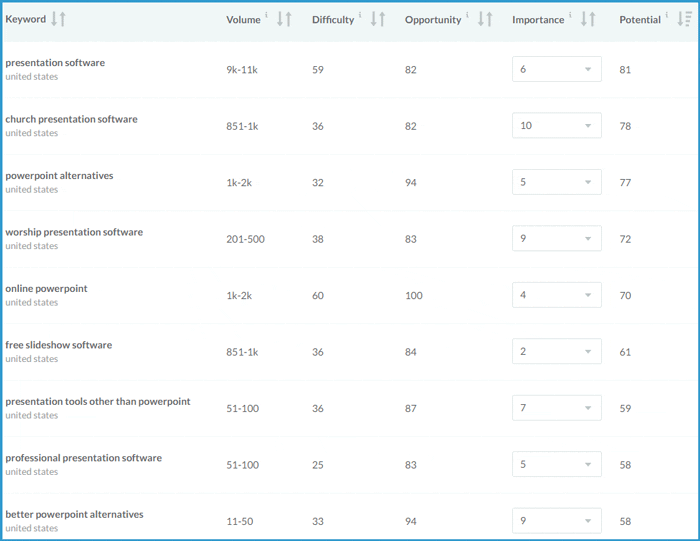Moz releases a new free tool to help you discover, prioritize, and build lists of high-quality keywords.
The Keyword Explorer (KWE from herein) comes as part of the Free tools offered by Moz, a leader in Digital Marketing and Search Tools. It's a result of year-long development by a team already dedicated to the maintenance and development of Moz's rankings collections and research tools. How has it the impacted the final product? Let's find out.

What does it do?
The official strapline is...
"Find The Best Keywords For Your SEO Strategy
Discover, prioritize, and build lists of high-quality keywords."
And I can safely say it passes the "Ronseal Test"; it does exactly what is say's on the tin.
The tool takes users through the entire keyword research process, whilst providing metrics and scoring systems (Volume, Difficulty, Opportunity, Potential, Keyword Suggestions, SERP Analysis and Mentions)to help users in their keyword selection.
One thing to point out, before we move on any further, is when I refer to it as part of the "free tools", it actually comes in a more freemium model, much like the rest of Moz's services like Open Site Explorer. In terms of access, it lets you run 2 free searches/day without logging in, another 5 with a free community account, and if you're a Pro subscriber, you've already got access.
For those keen to get an in-depth look at what the new tool can do, Rand Fishkin has created the below step-by-step slide deck.
What makes it any different to the other Keyword research tools?
Unlike a lot of the current offerings, of which the most well-known is Google's Keyword Planner, the Moz KWE takes you through the full Keyword research process. Starting with the discovery of Keyword Ideas, followed by the-the collation of Metrics, then building a list of suitable options, before filtering and prioritising the best options based on the metrics of your choice. It's incredibly quick and cuts an awful lot of the labour intensive exporting, data sifting and filtering functions needed to create a presentable list on google sheets or excel.
The metrics Moz have used are also worth noting. The usual suspects of Difficulty (which has been upgraded) and Volume are used, along with three additional offerings. Opportunity (an estimation of the how many positions are available in the SERP), Importance (a metric you can modify to indicate if a keyword is more or less important to your campaign/project), and Potential (which is a combination of all the metrics, built to help you prioritize a keyword list).
Another point worth noting is the accuracy of the data. Moz claims the KWE has a 95% accurate data set, as a result of an anonymized clickstream data from nearly one million real searchers. Typically, keyword tools don't usually go past AdWords for volume score, however using Russ Jones' Bucket Methodology they are able to bypass this and offer a more thorough and accurate dataset.
Finally, the import and export functionality is excellent. The ability to easily upload your current list and export it along with the new suggestions is a great feature and was built with power users in mind.
On a parting note and just for interest's sake, here's the internal pitch slide deck, used at MozHQ. We thought it might pique your interest if you're involved in NPD. Let us know if you have any thoughts, or want us to take a look at your digital marketing tool or service.








